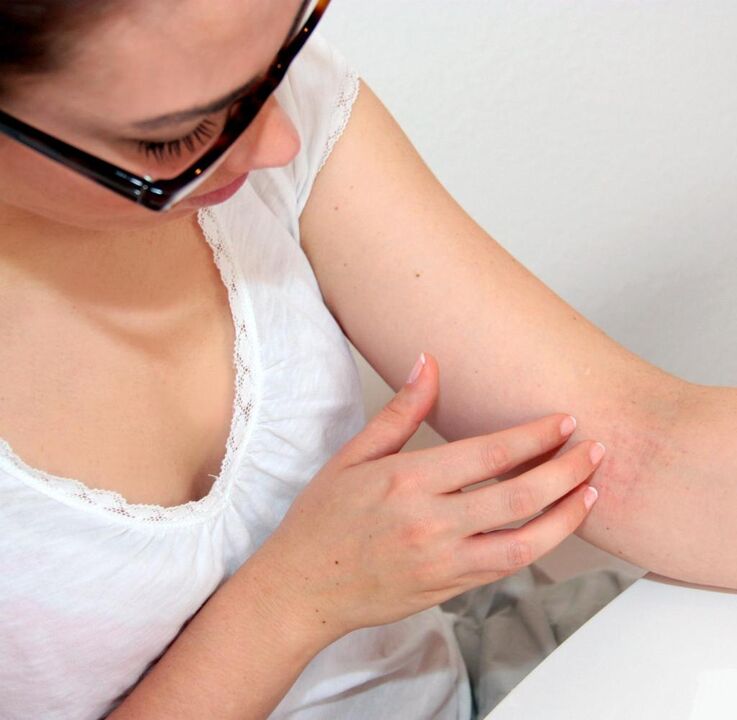
Symptoms of worms in humans can be very different, it all depends on the type of parasites present in the body. Treatment necessarily requires an integrated approach, only under this condition will it be possible to eliminate this problem. For this purpose, medicines and folk methods are used.
Sometimes it can be very difficult to determine the signs and symptoms of worms in humans, since helminthic infestation is very similar in its symptoms to the pathologies of many diseases of the intestines and stomach, gallbladder, liver and infectious diseases.
What types of worms are there?
Worms are generally divided into several groups, namely:
- round;
- tapeworms;
- strokes of luck.
Roundworms are thin, long worms with a yellowish or pink tint. The disease begins to develop when the eggs of these worms are ingested, which can occur if contaminated food is consumed. The larvae develop from eggs in the intestines and spread throughout the body.
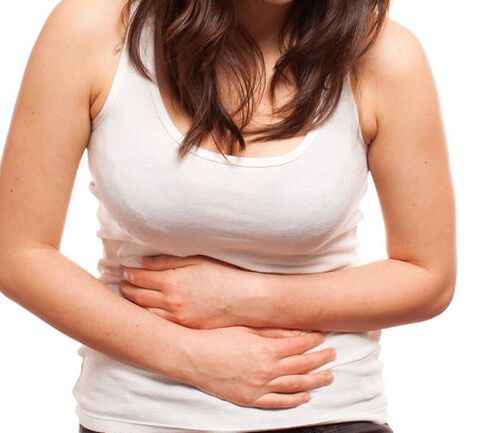
Together with blood flow, they are carried to all internal organs, causing minor hemorrhages. Among the main symptoms of worms (in the photo, one of the signs of helminthic infestation is abdominal pain), the presence of fever and body aches can be highlighted. Often, no one pays special attention to these signs, because they associate them with colds. During this time, the larvae, along with the bloodstream, are transferred to the lung tissues. From there, after maturation, they enter the oral cavity, then into the intestines, where they grow and multiply. During their life, roundworms release toxic substances into the human intestines, which cause poor health and unpleasant symptoms.
Among the main symptoms of worms in adults are:
- abdominal pain;
- frequent urge to defecate;
- loose stools;
- signs of intoxication.
As a result, weight loss may occur, rashes may appear on the body, and other signs of allergies may appear.
In childhood, pinworms are the main concern. They are small, round, grayish worms. Their appearance is caused by non-compliance with hygiene rules and the consumption of poor quality products. Additionally, infection from pets is possible. Pinworms live and reproduce in the intestines.
It is quite difficult to get rid of this type of parasite, since self-infection constantly occurs. At night, pinworms lay eggs in the folds near the anus. At this time, very intense itching and painful sensations are noted. The general state of health deteriorates significantly, since the parasites have a toxic effect on the body, causing severe inflammation. This is in the form:
- nausea;
- diarrhea;
- stomach ache.
Another roundworm is the whipworm. Its rear part is thick, barrel-shaped, and the head part is very thin, shaped like hair. Using a thin part of the body, the parasites penetrate the intestinal walls and feed on blood. Infection occurs when whipworm eggs get into food.
The parasite damages the intestinal walls, causing intoxication of the body, which often leads to appendicitis.
The broad tapeworm is a long worm that belongs to the tapeworm family. This flat parasite reaches very large sizes. Larvae go through several stages during their development. Its intermediate hosts are river fish and crayfish. A person consumes river fish infected with helminths, with which the latter enter the body, where they begin to develop.
This parasite is large and therefore requires a lot of food. As a result, a person develops symptoms quite characteristic of worms, including rapid weight loss, poor health, fainting and anemia.
Bovine and porcine tapeworms are classified as tapeworms. They reach several meters. You can become infected by eating undercooked or undercooked meat. The body of the tapeworm consists of several flat parts in which the eggs develop.
They can live for several years in the human body. Thanks to the presence of special suction cups and hooks, these parasites are very firmly attached to the intestinal walls. They suck out all the nutrients, poisoning the human body with toxins. Some of the main symptoms of worms include severe weakness, weight loss, nausea and intestinal dysfunction. A person is constantly bothered by headaches, even migraines, and dizziness. There are fainting spells.
When the liver fluke enters the body, it causes the disease opisthorchiasis. You can become infected by eating river fish that has not undergone sufficient heat treatment. If a person has this type of worms, the symptoms are expressed in the form of pain and a feeling of fullness in the right side, stool disturbances, and sometimes a slight yellowing of the skin. Most people visit the doctor with signs of hepatitis and cholecystitis. If parasites are not eliminated from the body for a long time, liver cirrhosis and malignant tumors can form.
Infection methods
Before identifying the signs and symptoms of worms in humans, you need to understand exactly how the infection occurs. The main modes of infection by worms:
- through the ground;
- contact with animals;
- food;
- open tanks.

Sometimes the source of infection can be the bite of stinging insects. You can become infected from food that has not undergone sufficient heat treatment.
Main signs in adults
Symptoms of worms in humans cannot always be immediately recognized correctly. Parasites cause a number of symptoms. If this happens, you should definitely see a doctor for full diagnosis and treatment. If you recognize the symptoms of worms in a person in the early stages, this will allow you to avoid a number of diagnostic errors. Among the main characteristics it is worth highlighting:
- allergic skin rashes;
- frequent cough;
- the appearance of a runny nose, pneumonia;
- constipation;
- frequent colds;
- nervousness.
If the worms are long, they form whole balls that prevent the secretion of bile and pancreatic juice. As a result, worm symptoms appear in humans, such as constipation, diarrhea and bloating. Teeth grinding may occur.
Against the background of constant chronic poisoning with worm waste, depression is observed. When parasites move through the body and damage tissues, a person begins to experience pain in the joints. If there are worms, the symptoms can be very different; only a doctor can make the correct diagnosis.
Signs of helminthic infestation in children
The symptoms and signs of worms in a child are quite specific. The doctor will be able to accurately determine whether the baby has parasites in the intestines by manifestations such as:
- increased activity;
- salivation;
- itching near the anus;
- peeling of the eyelids;
- craving for sweet foods;
- lethargy and drowsiness;
- signs of anemia;
- frequent colds.
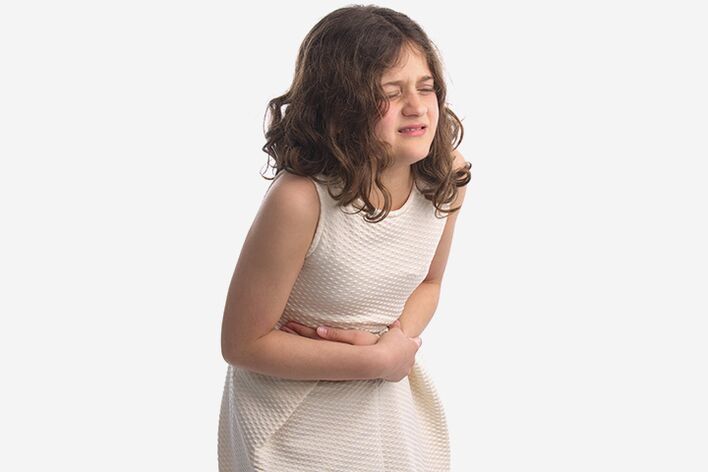
If these signs and symptoms of worms are observed in a child, there is a high probability of the presence of parasites in the body. In this case, you should definitely consult a doctor to make a diagnosis and prescribe correct and effective treatment.
Acute stage manifestations
The first symptoms of worms in an adult appear not immediately after infection, but after a few days. The average incubation period is 2 to 3 weeks. The presence of parasites in the body can manifest itself in the form of allergic reactions. In the process of growth and vital activity, helminths release toxic substances that lead to intoxication of the body.
Among the symptoms of allergy to worms in an adult, the following are observed:
- swelling;
- Rashes;
- itchy skin;
- cough.
In particularly severe cases, the development of bronchitis and asthma cannot be excluded. Certain types of parasites can cause serious reactions such as facial swelling. Particularly complex manifestations can occur against the background of echinococcosis. This occurs as a result of a ruptured cyst. In this case, the risk of anaphylactic shock and death of the patient increases significantly.
Symptoms of worms in an adult in the acute stage include not only allergic manifestations, but also an increase in temperature. In case of serious infection, your health deteriorates significantly. Cough and chest pain often appear.
Manifestations of the chronic stage
In the chronic form of infection, symptoms of worms in an adult largely depend on the localization of the parasite. In particular, the following symptoms may be observed:
- intestinal dysfunction;
- painful sensations;
- bloating;
- decreased or increased appetite.
Helminths secrete substances that negatively affect the digestion process. There may be a lack of nutrients in the body.
Symptoms of worms in adults often include various psychological disorders. The more parasites there are in the body, the more pronounced the signs of damage to the nervous system. Among the manifestations of the presence of helminths, headaches, insomnia and absent-mindedness should be highlighted.
Specific symptoms
There is a high risk of infection with worms such as trematodes or, as they are also called, flukes. These parasites live in different organs of the human body. Signs and symptoms of worms appear as follows:
- local swelling;
- cough;
- rise in temperature;
- enlarged lymph nodes;
- myalgia;
- chills;
- enlarged spleen and liver.
These helminths can lead to the development of pyelonephritis, cystitis and urolithiasis. Possible complications include chronic kidney failure. The intestinal form manifests itself in the form of pain, lack of appetite and diarrhea mixed with blood.
Carrying out diagnostics
If symptoms of worms appear in a person, treatment should be carried out immediately after diagnosis. To detect the presence of parasites in the body, several accurate and informative diagnostic methods are used. These include:
- linked immunosorbent test;
- ELISA tests;
- serological techniques;
- Radiography;
- ultrasound diagnostics;
- tomography;
- bioresonance diagnosis.
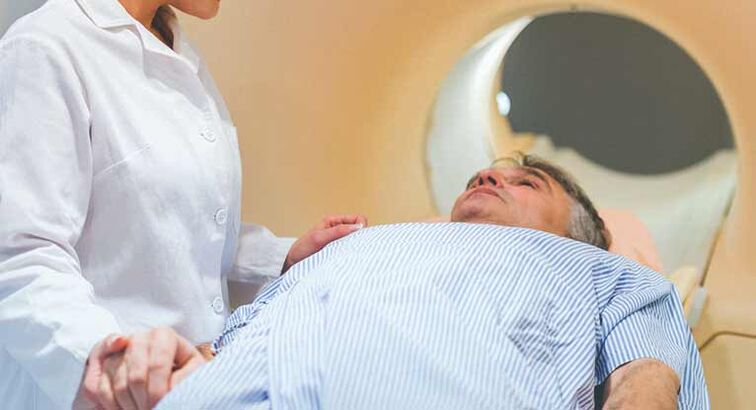
The enzyme immunoassay makes it possible to determine the presence of adult parasites or their eggs in the body, as well as to identify their type. ELISA tests indicate the body's reaction to infection with parasites. This technique is not independent. It should be used in conjunction with other types of research.
Serological methods are used to diagnose helminthiasis in the acute stage. Bioresonance diagnosis is a study that allows parasites to be identified at a very early stage.
Modern diagnostic techniques with high accuracy will help not only to recognize the fact of infection with worms, but also to determine what type they belong to, establish their age and stage of development, which significantly accelerates therecovery process.
Drug therapy for adults
If symptoms of worms appear in adults, treatment should be carried out immediately, as this is the only way to avoid the development of complications and dangerous pathologies. Treatment of helminthiasis involves the use of a whole range of procedures and medications, as well as strict medical prescriptions.
To eliminate the symptoms of worms in humans, treatment necessarily includes taking certain medications. The use of anthelmintic compounds is aimed at destroying many types of worms. There are also narrowly targeted drugs.
It should be noted that all medications cause certain side effects, including nausea, dizziness, weakness, abdominal pain, drowsiness and many other signs of poisoning. If such manifestations occur, you should take an enterosorbent.

To eliminate the symptoms of worms in adults, treatment can be carried out with anthelmintic drugs in the form of drops. This medication is very convenient to use, as it allows you to accurately calculate the dosage, which is often impossible to do with tablets, since they are covered with a protective coating.
All drugs intended for the treatment of worms help to quickly and effectively eliminate the symptoms of helminthic infestation, but they are highly toxic substances and can lead to intoxication of the body.
Drug therapy for children
Parasites cause severe discomfort and deterioration in well-being. That is why, after the appearance of symptoms of worms in children, treatment should be started immediately. The drugs are available in tablet form and in suspension form.
These medications contain various active ingredients that are only effective against a specific type of parasite. The medication can therefore only be used after diagnosis. Depending on the symptoms of worms in children, treatment is chosen individually in order to effectively eliminate parasites and not harm the child's body. It is imperative to strictly adhere to the recipe, since the dosage is always chosen separately for each child and depends on his weight, age and the type of parasite.
Many medications are prohibited for children under 12 kg.
Folk remedies
If you have symptoms of worms at home, treatment can be carried out using folk methods. To combat helminthiasis, various herbs are used, which are no less effective than medications. These include the following:
- dandelion;
- onion;
- nettle;
- tansy;
- mugwort;
- burdock;
- garlic.
An equally common way to treat helminthic infestations is to consume raw pumpkin seeds. As a preventive measure, you can use carrot juice, which is recommended to be consumed for 2 weeks, in the amount of 200 ml each.
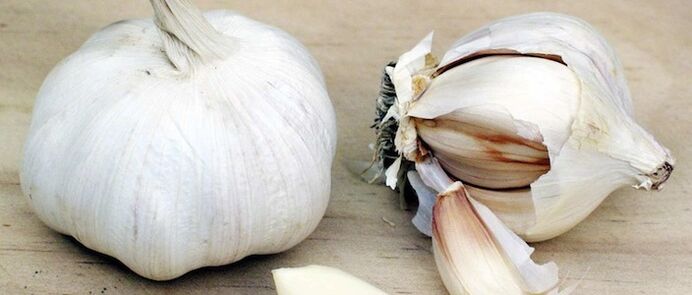
In addition to decoctions and tinctures, it is also recommended to do enemas that will help eliminate helminths. For an enema, you can use garlic tincture, tansy infusion or dry wormwood. Any of these remedies is used only in filtered form, so that small plant particles do not enter the intestines and damage the mucous membrane.
Carry out prevention
It is recommended to regularly take preventive measures, as this will prevent helminth infection and subsequent treatment for a long time. For prevention, you should try to avoid foci of worm infection, and also use folk remedies. Preventative measures should also be included:
- maintain hygiene;
- eat only well-washed vegetables and fruits;
- extermination of insects in the house carrying helminth eggs;
- drink only boiled water;
- carry out drug prophylaxis.

You should only use medications after consulting a doctor, as they contain toxic substances that can harm your health.
























